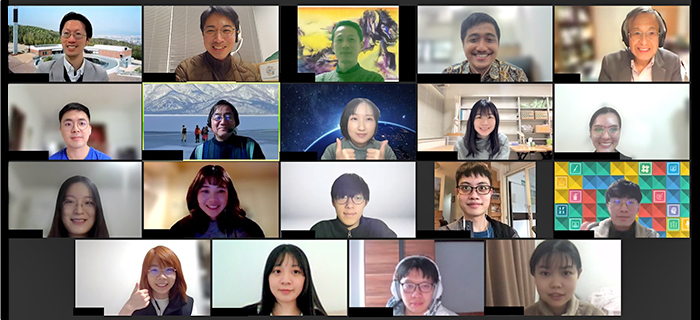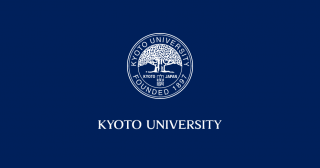On 5 February, Kyoto University hosted the 2021–2022 winter meeting of its Asian Future Leaders Scholarship Program (AFLSP). The event, held online due to the Covid-19 pandemic, featured presentations by seven scholars on their research, contributions to society, and other efforts undertaken as part of the program.
The gathering opened with an address from Professor Katsuichi Uchida, president of Bai Xian Asia Institute (BXAI), which runs AFLSP, expressing his expectations for Kyoto University's role in the program. He was followed by Professor Mamoru Kanzaki of the Graduate School of Agriculture, who as chair of the AFLSP Committee reflected on the University's involvement in AFLSP since 2014, which has included organizing annual meetings and various other activities.
In the presentation sessions — moderated by Associate Professor Liang Zhao of the Graduate School of Advanced Integrated Studies in Human Survivability (GSAIS, or "Shishu-Kan") and Senior Lecturer Kai-Chun Chang of the Graduate School of Engineering — the seven students reported on their accomplishments over the past year and discussed their own efforts to contribute to society.
The presenters then received feedback from BXAI President Uchida and Professor Kanzaki, with two of them selected to later receive awards for superior initiatives and presentations.
Finally, a farewell party was held for the four scholars who are graduating in March 2022.
The event closed with remarks from Professor Kanzaki, who had chaired the AFLSP Committee for the past three academic years.
The organizers hope that AFLSP will continue to facilitate Asian students' understanding of cultural diversity and development of leadership skills for years to come.

Asian Future Leaders Scholarship Program (AFLSP)
Established by BXAI in 2014, AFLSP offers opportunities for young people in Asia to study in other parts of the region, so as to help them deepen their understanding of different cultures while gaining the leadership skills needed to contribute to regional and global development.
The program currently accepts approximately 100 students each year to study at six partner universities in Japan and China, including KyotoU, which annually hosts around ten scholars.





